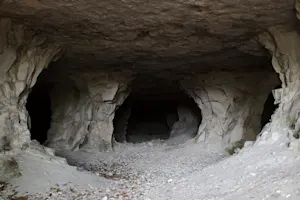What Makes This Word Tick
Ah, the delightfully dismissive "nonsensical"! Derived from "nonsense," this word is perfect when something seems utterly devoid of logic or reason. It's often deployed with an exasperated eye-roll or a bemused chuckle, making it a staple in critiques and casual conversation alike.
If Nonsensical Were a Person…
Imagine a whimsical jester who thrives in chaos, always sporting a mismatched outfit and answering questions with riddles. This lively character would giggle at convention and revel in the absurd, never taking life or themselves too seriously.
How This Word Has Changed Over Time
In earlier times, "nonsensical" wasn't always used with its current playful undertone. It simply meant something devoid of sense. These days, it can describe an idea that is not just foolish but often harmlessly ridiculous, reflecting society's more lighthearted embrace of the absurd.
Old Sayings and Proverbs That Use Nonsensical
While there aren't proverbs featuring "nonsensical" outright, phrases like "that makes no sense" or "utter foolishness" convey similar sentiments. These expressions remind us that baffling ideas have bewildered folks for centuries.
Surprising Facts About Nonsensical
Did you know the word doesn’t just critique ideas? It can describe language too! "Nonsensical" finds a place in literary circles to refer to humorous or fantastical writings meant to defy comprehension, like the babble of some nursery rhymes.
Out and About With This Word
Beyond conversations, "nonsensical" has found its way into art and performance. Surrealist artists and abstract performers often blur the line between sense and nonsense, celebrating this delightful state of confusion.
Pop Culture Moments Where Nonsensical Was Used
Whether in films like "Alice in Wonderland" or "Monty Python’s Flying Circus," nonsensical humor has delighted audiences, embracing the absurd with glee. These cultural touchstones prove that madness can be genius in disguise.
The Word in Literature
Literature loves a bit of chaos, and "nonsensical" writings have a niche of their own. Authors like Lewis Carroll and Dr. Seuss playfully twist language into bizarre forms, crafting worlds where nonsensical is the norm.
Moments in History with Nonsensical
Consider the Dada movement in art, which was rooted in absurdity and chaos. The word perfectly encapsulates the spirit of this early 20th-century art rebellion, where nonsense challenged traditional aesthetics.
This Word Around the World
In Germany, they use "Unsinn" for nonsense, highlighting how absurdity transcends languages. Each culture has its unique expressions for the nonsensical, proving laughter and bewilderment are truly universal.
Where Does It Come From?
"Nonsensical" is a marriage of "non," meaning not, and "sense." The word has reliably been pointing out the illogical and irrational since the mid-19th century. It's the language's polite way of waving off absurdity.
How People Misuse This Word
Sometimes, folks equate "nonsensical" with "untruthful." While something nonsensical can be false, the word itself doesn't imply deceit, just a lack of logic. Important distinction, I’d say!
Words It’s Often Confused With
Illogical: While both suggest a lack of reason, "nonsensical" carries a whimsical tone.
Absurd: Although similar, "absurd" often implies something ridiculous or incredibly unreasonable.
Ridiculous: Suggests an idea is worthy of mockery, whereas nonsensical can be more playful.
Additional Synonyms and Antonyms
Synonyms include "absurd," "foolish," and "preposterous." Antonyms to consider would be "logical," "sensible," and "reasonable"—words that are firm and steady, standing in contrast to the airy nature of "nonsensical."
Want to Try It Out in a Sentence?
"The comedian's routine was delightfully nonsensical, leaving the audience in stitches with his absurd riffs and ridiculous antics."
















